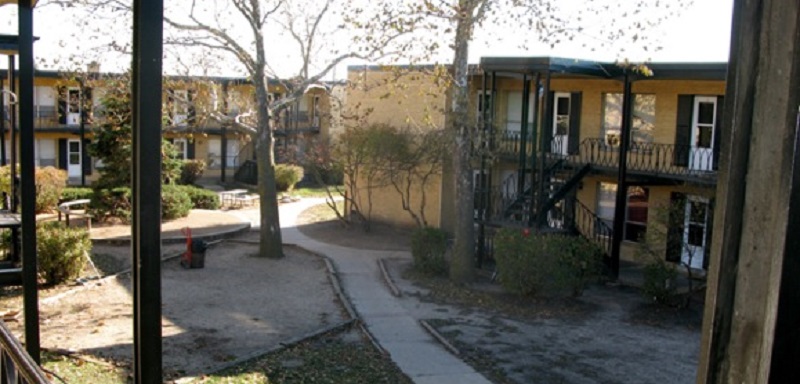I’m not great at compassion ministry. I’m not really sure the best way to gauge that, especially at a place like Parkside, where I live, but that’s how I feel. Do I measure it in the number of immigrants I know in my community? The depth of my relationships with them? The magnitude of the swell of love I feel in my heart when I am hailed across the courtyard by a Sudanese neighbor? I’m not sure, but all the standards I come up with generally make me shrug—on good days, with a chuckle, on bad days, with a sigh—and just admit it: I’m not that great at compassion ministry. The number I know is small. My relationships are not terribly deep. The love that swells is usually much too small.
God, I have found out, does not really mind that I have so little to offer. For whatever reason, in the unsearchable depths of his wisdom, in the warmth and turmoil that is his strong grace, he has given us to each other, myself and these people who live in the apartments that stand beside and stare into and touch my own. I can’t always see what he’s working at. Sometimes I get a glimpse, but I think that obedience happens before and around and sometimes without a glimpse of the plan.
One thing I have learned about obedience and myself is that the grander I imagine my ability to obey, the more trouble I have doing anything well. I once, after taking inventory of my personality and strengths, decided I would like to make a great impact in the Iraqi refugee community in the Western Suburbs. I felt equipped to do this—I spoke Arabic, I’d spent time in Arab culture, I was empathetic, I had English-teaching experience, I was educated in Scripture, I was armed with a sense of calling. I wasn’t sure what God was going to do, but I expected big things. I was ready. Ready to teach English to the masses. Ready to start a Bible study. Ready to inspire young Iraqi men to help their community cope with the realities of immigrant life. Ready to obey.
I thank God that he was not hindered by all my readiness—by all my “strengths”. In three years of working among that community, I drove a 15-passenger van to every corner of DuPage county, picking people up and taking them to grocery stores, public aid offices, and the Lutheran churches where a Lebanese pastor taught them the Bible and helped them make ends meet. So far as I can tell, I inspired no young men, taught no one English, and started no Bible studies. Out of a large community of immigrants, I formed a close relationship with just one family—Iranians, not Arabs, who spoke only Farsi, a language I could not list before God as one of my strengths. The youngest son of that family came to know Christ during that time less because I could answer his Scriptural and theological questions (I remember a particularly unenlightening conversation we had about the Trinity) than because some friends and I, people who were his neighbors at Parkside, spent time with him. I came to love and care for this young man not because I was compassionate—I am often not—but because God helped me grow and love and care in spite of how ready I believed I was.
Since that time, God has been slowly teaching me not to place so much value on having “strengths”. On being great at compassion ministry. I can remember a day that I greeted a Sudanese neighbor of mine in front of his apartment here at Parkside and asked him how he was doing. His gaze shifted up over my shoulder into the distance, and a gloss went over his eyes as they began to fill with tears. “It’s so hard to live here,” he said. “I miss my home, my family, I…,” and he lowered his chin to his chest and began to sob. I remember once, as a child, walking into our living room and finding my mother crying. I don’t know why she was crying, but it surprises me less now, as an adult, that she was for some reason or another. I went up to her, and I put my arms around her and gave her a hug. And that was what I did to this grown, African man in the middle of our courtyard. That day, God did not have use for any of the strengths I had gained since the age of ten.
Not everyone is called to give hugs to African men in American courtyards. But, if you’ve ever thought that compassion ministry was for someone with a different set of strengths than yours, my thought to that is, nuts. Please pray about coming by sometime and meeting some people here.



